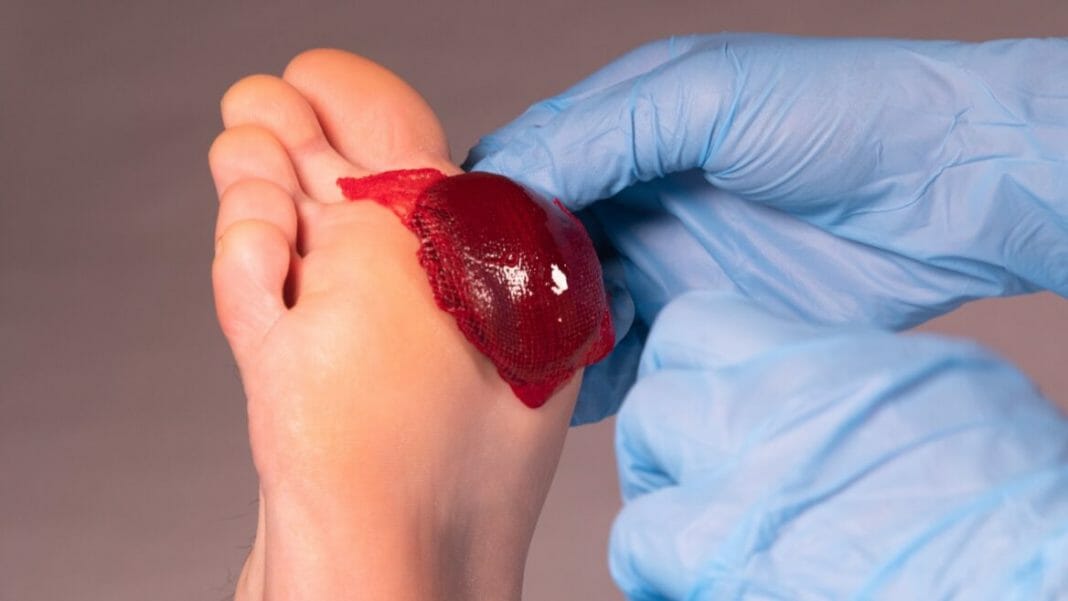As June marks Wound Healing Awareness Month (WHAM!), wound-care experts from RedDress, the American-Israeli medical company behind the state-of-the-art ActiGraft wound care systems, are sharing tips and educating the public to help those dealing with healing deficiencies manage chronic, festering wounds.
The American Board of Wound Management (ABWM) established June as Wound Healing Awareness Month to highlight the work of wound care specialists and provide educational resources to the estimated 6.7 million Americans currently living with chronic wounds.
These Americans typically live with healing-deficient medical conditions, including diabetes, cardiovascular disease and obesity, which increase the likelihood of a person developing a chronic wound.
In recognition of WHAM!, Dr. Naz Wahab, who serves as the medical director for the Mountain View Wound Care & Hyperbaric Center in Las Vegas and a medical advisor for RedDress, is sharing the following wound management tips with the general public and the advanced wound care solutions like ActiGraft that are currently available.
Wash your wound. When you first sustain an injury, clean it with anti-bacterial soap and water right away to remove dirt and other debris. Use a soft cloth to clean around the wound and avoid placing soap directly in the wound.
Keep a clean dressing on your wound. Dressings prevent germs and other bacteria from infecting your wound, as well as prevent further injury. Because fluids that drain from a wound can damage the healthy skin around it, it’s important to change dressings regularly.
Eat healthy. Having a healthy, appropriate diet gives your immune system the energy it needs to heal efficiently and properly. Leafy green vegetables, eggs, salmon and nuts are rich in protein, which helps wounds heal faster.
Don’t get wet. If your wound is on a lower extremity, keep it free from water in the shower or bath as water can cause the skin to soften and reopen the wound. Use waterproof covers or an elevated shower chair to help keep moisture out of the wound.
Consult a doctor. If a wound does not heal in four to six weeks, contact your primary care physician and let them know the progress, or lack thereof, of your wound’s condition. Additional treatments may be needed if a wound continues to fester.
According to Wahab, who also serves as the medical director of inpatient wound care for
Dignity Health hospitals, the most common wounds Americans experience are pressure injuries, diabetic foot ulcers, venous stasis ulcers and surgical wounds, which can often lead to steep medical bills for patients.
“We spend approximately $25 billion as a country to treat chronic wounds, but the real cost that we see is quality of life,” said Wahab, who has spent more than 20 years of her career specializing in wound management. “If unable to heal or left untreated, chronic wounds can have complications ranging from light to lethal. A festering wound can lead to infections, long-term hospitalizations and possibly amputation. Many people who undergo lower-limb amputations, especially diabetics, don’t survive after three months.”
According to the American Diabetes Association, more than 11 percent of patients who underwent major amputations died within 30 days, and nearly 18 percent died within 90 days.
With the U.S. Census Bureau estimating that 20 percent of our population will be 65 and older by 2030, the need for more effective wound care management systems will increase, according to Wahab. Combined with the increasing rate of diseases, medical experts at RedDress believe the wound care industry needs to work now to create new products and more resources for our increasing elderly population.
To help meet the forecasted demand for advanced wound care systems, RedDress has developed ActiGraft, an FDA-cleared wound management product that produces in vitro blood clots from a patient’s own blood. Once applied, the autologous blood clot serves as a protective covering and initiates wound-healing processes — which naturally occur in the human body — giving those with chronic wounds or healing deficiencies a viable, natural option to heal properly.
Backed by clinical evidence, ActiGraft delivers a 72% complete wound closure rate on chronic wounds.1
Last year, RedDress’s ActiGraft was recognized as one of the year’s Top 10 Innovations by Podiatry Today, a medical trade journal.
To learn more about RedDress or their ActiGraft technology, visit www.RedDressMedical.com.
